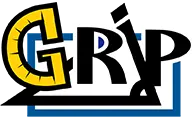Euclid in the Eye of the Beholder: Which Elements Should We Honor?
Summary:
As its name implies, Euclidean geometry goes back to the works of Euclid, specifically to his Elements. The question, however, is how much Euclidean geometry actually already is in the Elements and how much we are likely to read into it. The fact is that we know very little about Euclid and the actual nature of his work as he intended it. In this talk, which is based on an essay for the forthcoming book on Student Learning Outcomes (SLOs) for Geometry Education for Teachers courses, I will show how the interpretation of the intent of the Elements changed over time and how these reinterpretations led to changes in the content of Euclidean geometry that may or may not have been in the spirit of the kind of geometry that Euclid envisioned. With this in mind, I will make the case for a modification to SLO7: “Demonstrate knowledge of Euclidean geometry, including the history and basics of Euclid’s Elements and its influence on math as a discipline.” To be sure, I do not disagree that students should have a basic awareness of what is in the Elements and how Euclid’s work laid the foundations for what is now Euclidean geometry. I will argue, however, that rather than focusing solely on Euclid’s work as the “fountain head” of Euclidean geometry, it might make more pedagogical sense to also highlight at least some of the contributions across time and civilizations that potentially strayed away from Euclid’s intent, but left an indelible mark on what we now call Euclidean geometry.
Registration Closed
Duration: 60 minutes
Format: Online seminar via Zoom web meeting software with questions and discussion. Detailed instructions for joining the seminar will be emailed to registered participants.
Presenter:

Eisso J. Atzema earned a Ph.D in History of Mathematics from Utrecht University (NL) under the direction of Henk Bos in 1993 with a thesis on the history of 19th century geometrical optics (which technically makes him an academic grandson of Hans Freudenthal). Since then he has presented and published on a wide variety of topics in mathematics, history of mathematics, and mathematics education. Usually, however, his research is at least tangentially related to the study of some aspect of 19th century geometry. He has a special interest in the study of quadrilaterals and its history. He has been at the University of Maine since 1997, where he is a Principal Lecturer.
